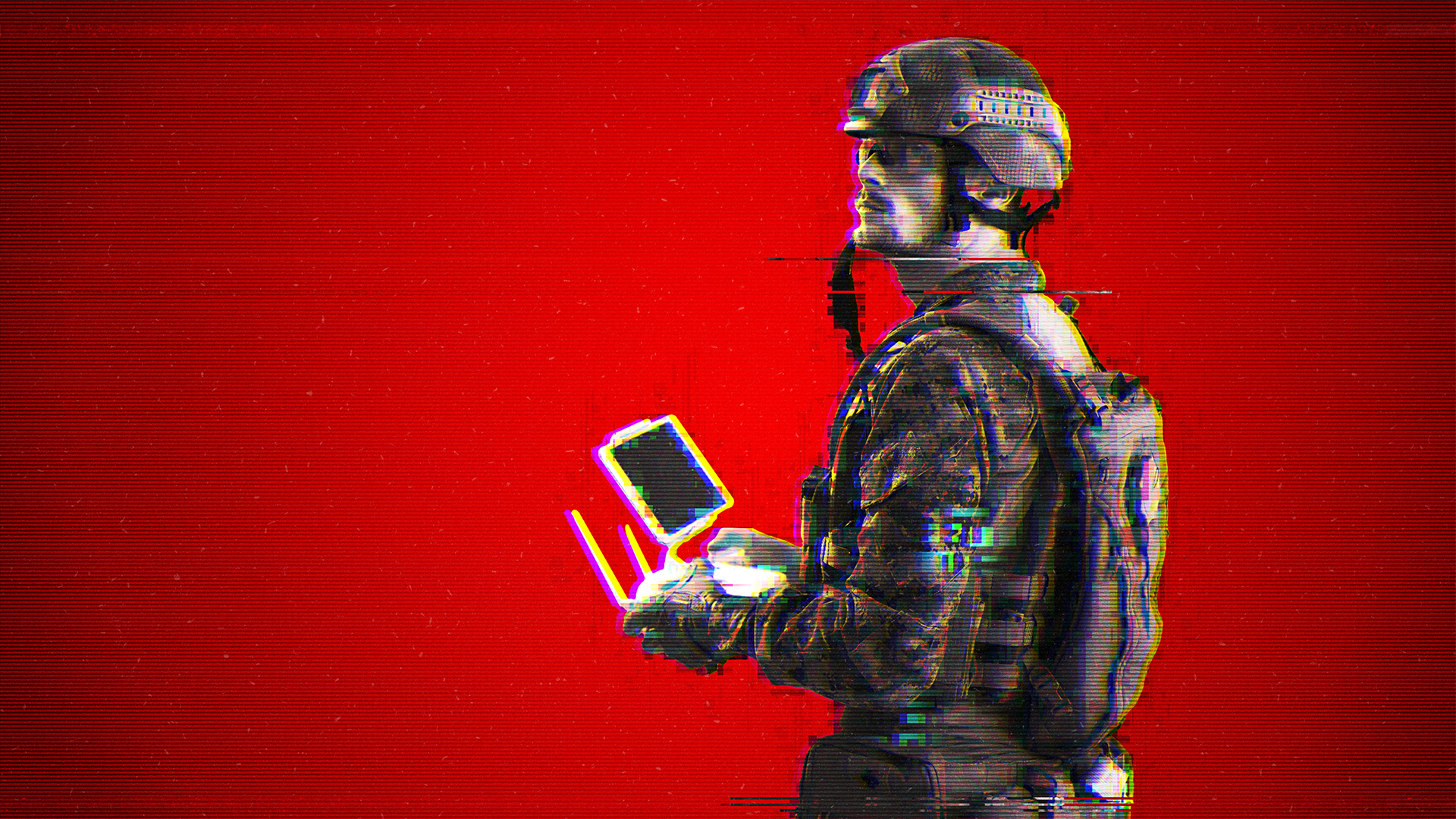Changing the Face of War
The Ukranian battlefields give a glimpse into what future warfare could look like. While traditional tanks and heavy artillery are pounding away, other latest-generation munitions are also in use: High Mobility Artillery Rocket Systems, Javelin “fire-and-forget” portable anti-tank missiles, and backpack-sized autonomous killer drones.
Warfare specialist Thomas Hammes notes that over the next 10 to 20 years, “advances in nanotechnology, drones, task-specific artificial intelligence and space . . . will drive deglobalization and major shifts in the character of war.”
This is the changing technological face of war. But is there any hope of a world where war will change and become obsolete?
Several specific technologies are likely to have the greatest impact on military affairs in this coming century. They’re the product of the fourth industrial revolution, or IR4, and (according to military strategist Mick Ryan) will include “artificial intelligence, robotics, quantum technology, biotechnology, energy weapons, hypersonics, space technology, and additive manufacturing,” or 3D printing.
This means that we are entering an era of cheaper and more effective weapons that will make small states and non-state actors capable of challenging major powers.
The US-made Reaper drone made a significant difference in the Iraq and Afghanistan wars. But to use such a drone today, armed with a laser-guided Hellfire missile costing $150,000, would be much more expensive than a Switchblade missile. This 50-pound, $10,000 unmanned aerial vehicle can autonomously carry out a kamikaze-style attack. There’s even the possibility of 3D-printed backpack versions of such weapons, which private individuals could produce for about $2,500.
The worldwide defense industry will continue to play a central role in weapons manufacture. If we ask what the likelihood of an end to warfare is, we have to conclude that it’s impossible under present conditions.
The 2022 report from the Stockholm International Peace Research Institute shows that global military spending has doubled in the 20 years since the turn of the century to total US$2.1 trillion. The United States accounts for 38 percent of the world’s expenditure—that’s to say $801 billion. China comes a distant 2nd with $293 billion, followed by India (76.6), the UK (68.4) and Russia (65.9). Europe’s collective spend stands at $418 billion.
While most of the increase has come in conventional weapons, SIPRI notes soberly that “the nine states that possess nuclear weapons were all engaged in upgrading their nuclear arsenals.” Not all countries produce and export major weapons, though 60 nations do, and 163 are importers.
According to the US State Department’s 2021 report, “World Military Expenditures and Arms Transfers,” “about 79 percent of world arms trade by value appears to have been supplied by the United States, about 10 percent by the European Union, about 5 percent by Russia, and less than 2 percent by China.”
It’s obvious that none of this development would be possible without the human factor. But if we ask about human nature and war, we come closer to understanding why warfare is perpetual and peace is never permanent.
As philosopher David Livingstone Smith puts it, “war can be approached from many angles . . . , but there is one dimension that underpins them all: the bedrock of human nature. To understand war, we must understand ourselves.” What goes on in the warrior’s mind is what matters.
Victor Davis Hanson is a historian of war. He says, “Human nature is constant, despite radical changes in technology, social systems, and physical landscapes. That bleak reality should remind us that the veneer of civilization is always very thin, while the innate barbarity of humankind is forever very deep.”
And here’s where we should consider the biblical explanation of this global problem of warfare. What is in the heart of humankind that causes us to endlessly kill off people who share the same planet? Sometimes it’s envy. The Bible’s first recorded murder takes place when Cain kills his innocent brother Abel “because his own deeds were evil and his brother’s righteous.” As one writer puts it, “it is as if he could not wait to destroy his brother—a natural man’s solution to his own failure.” Envy is often at the root of one nation’s aggression against another.
James, the brother of Jesus, asks, “What causes quarrels and what causes fights among you?” His reply defines other aspects of human aggression: “Is it not this, that your passions are at war within you? You desire and do not have, so you murder. You covet and cannot obtain, so you fight and quarrel.” Humanity recognizes the need for peace, and we have many institutes dedicated to peace. But we’ve experienced little progress toward universal peace. It’s as if we have wonderful ideals, but accompanied by a death wish. Does that mean that we can never realize peace? Victor Davis Hanson would say, “Not as long as we have human nature.”
Jesus of Nazareth taught that there was a coming time of universal peace on earth when human nature would undergo transformation. He talked about a future time of “regeneration.” His disciple Peter spoke about the “restitution of all things.” The apostle Paul wrote that the human mind can be set on “the things of the Spirit,” and achieve “life and peace.”
The ultimate answer to human nature’s downside is in God’s promise: “I will put my law within them, and I will write it on their hearts.” But can anything be done in the meantime? Like so many other problems common to humankind, the best place to start is at home, with you and me.
The human mind can be individually renewed and made peaceful now. How? In the way that has been known for thousands of years. Jesus said that “all who take the sword will perish by the sword.” The Father of all humankind tells us, “The wisdom from above is first pure, then peaceable, gentle, open to reason, full of mercy and good fruits, impartial and sincere. And a harvest of righteousness is sown in peace by those who make peace” (James 3:17–18).
This is the way ahead on the personal level, until such time as God intervenes again in human history to save us from ourselves—something He promises to do.


